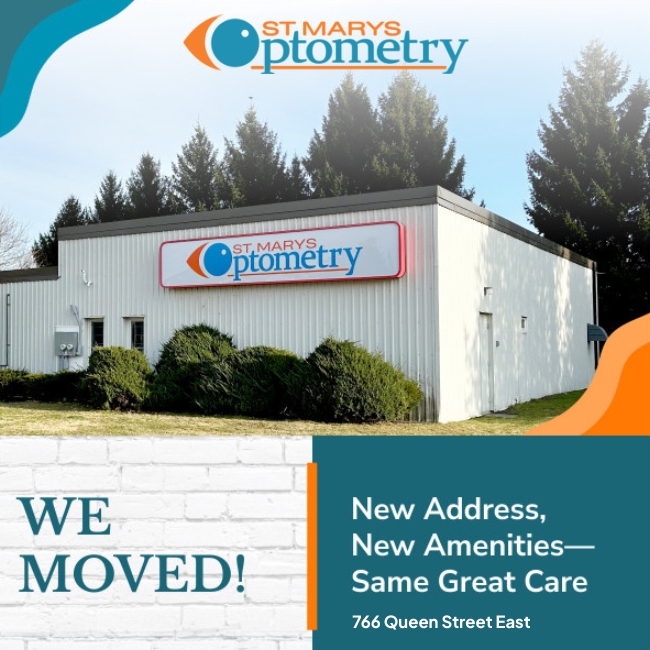If your child’s glasses prescription seems to change more often than you’d expect, you’re not imagining things. More and more children are developing nearsightedness (also called myopia), and many are seeing their prescriptions getting stronger from year to year. While it’s easy to chalk this up to screen time or genetics, there’s more going on beneath the surface.
Myopia affects a person’s ability to clearly see things at a distance. Although regular glasses or contact lenses can correct blurry vision, they don’t address how quickly the condition progresses. That’s where myopia management comes in.
Myopia management refers to a range of specialized treatments designed not only to correct vision but also to slow the progression of nearsightedness over time. These treatments are especially important for children, as early intervention can reduce the risk of developing high myopia, which is associated with more serious eye health issues later in life.
Introducing MiyoSmart Lenses
MiyoSmart lenses are designed to help with more than just vision correction. These lenses support children with myopia by gently addressing how their eyes change over time.
What makes MiyoSmart lenses different is something called DIMS technology, or Defocus Incorporated Multiple Segments. Here’s what it involves:
- The centre of the lens provides the child with clear vision, just like a traditional pair of glasses.
- Surrounding this centre zone are small segments that introduce a kind of “controlled blur,” or defocus. This defocus signals the eye to avoid growing in ways that cause myopia to get stronger.
- This slows the progression of myopia.
Who MiyoSmart Lenses Are For
These lenses are typically designed for children between the ages of 6–18 with myopia. In other words, they’ve already been diagnosed with nearsightedness, and their prescription is increasing over time.
If you’re wondering whether your child might benefit from MiyoSmart, an eye exam can be a good place to start. We can assess how your child’s eyes are growing, how often their prescription has changed, and whether something like MiyoSmart would be a good fit for their needs.
Some signs that a child may have myopia include:
- Frequent squinting or sitting close to screens
- Complaints of blurry distance vision
- Needing new glasses more often than expected
- A family history of nearsightedness
While not every child with myopia will need MiyoSmart lenses, it’s helpful to know that answers are available.
What Families Can Expect
One of the comforting things about MiyoSmart lenses is that they’re worn just like any other pair of glasses. There are no extra steps or new habits to form. Children wear them throughout the day as they go to school, play, read, and relax at home.
They’re also built with durability in mind. MiyoSmart lenses are made from a material that’s lightweight and impact-resistant. And because they look like regular glasses, most children adapt quickly without feeling self-conscious or overwhelmed.
It’s worth keeping in mind that MiyoSmart lenses are most effective when they’re part of a broader plan that might also include approaches like:
- More time spent outdoors, especially in natural sunlight
- Regular breaks from screens and near work (like reading or homework)
- Annual or semi-annual eye exams to monitor prescription changes
These strategies, when combined with MiyoSmart lenses, offer a gentle, consistent way to support long-term vision development.
Why Myopia Management Matters
You might be wondering: why not wait until your child is older and deal with their prescriptions then? That’s a fair question, and one many parents may have. The reason myopia management is becoming more common is because of the long-term impact that high myopia can have on a person’s eye health. These risks include:
By managing how quickly myopia progresses, families have the opportunity to support healthier eyes into adulthood.
A Community-Based Approach to Care
Having access to myopia control is important. Fortunately, you don’t need to travel far to find thoughtful, knowledgeable support. At St. Marys Optometry, we offer myopia control options that we want local families to take advantage of.
Our approach isn’t rushed. It’s built around conversations, check-ins, and keeping you involved every step of the way. Whether you’re new to myopia management or not, our focus remains on building trust and offering realistic, family-centred care.
The Next Step for Curious Parents
If your child has been wearing glasses for a while and you’ve noticed their prescription climbing, this might be a good time to explore other options. MiyoSmart lenses are a thoughtful choice for many families, and learning more starts with a conversation during an eye exam.
Book your visit today and get a clearer sense of how your child’s vision is developing and what support might be helpful moving forward. You’ll also be able to ask questions and talk through what life with these lenses might look like.
It’s a step that doesn’t need to feel overwhelming or urgent. Just a gentle check-in, and a chance to consider what tools are available for growing eyes and growing kids.





